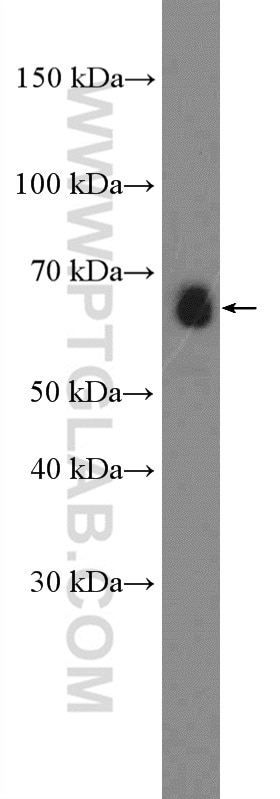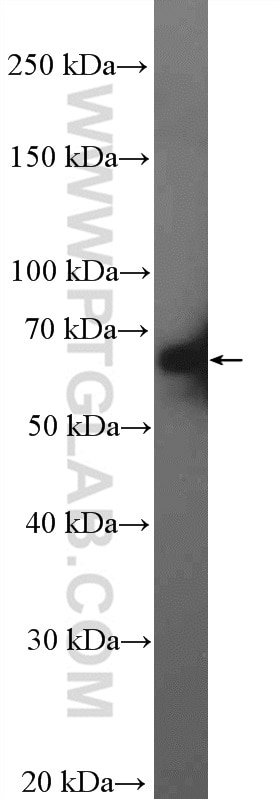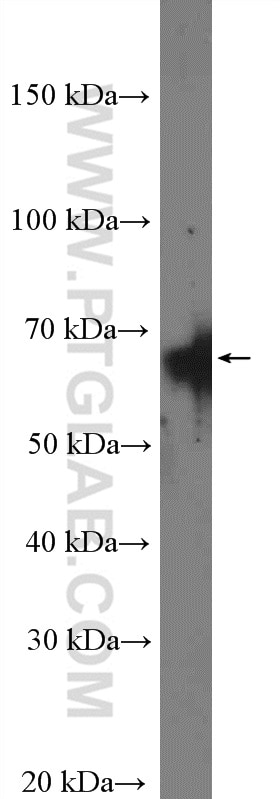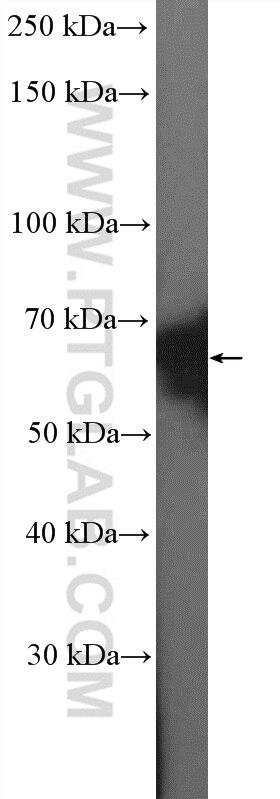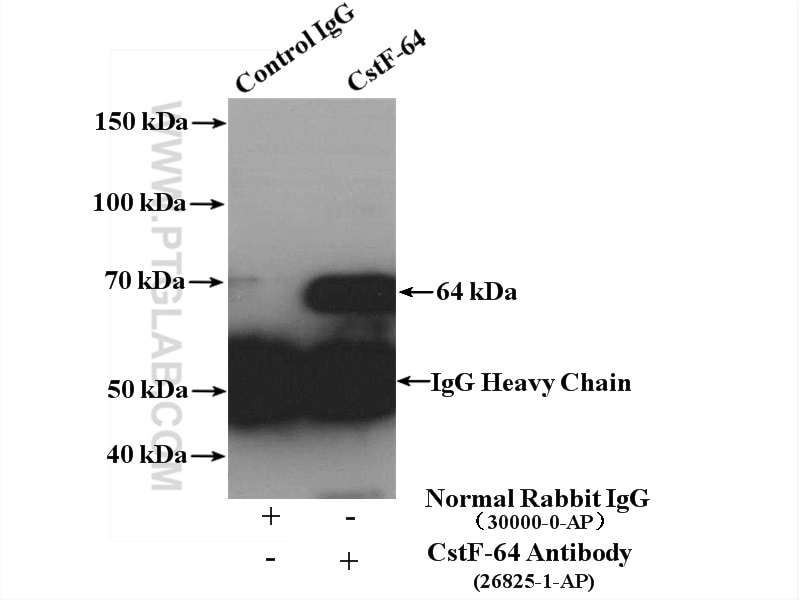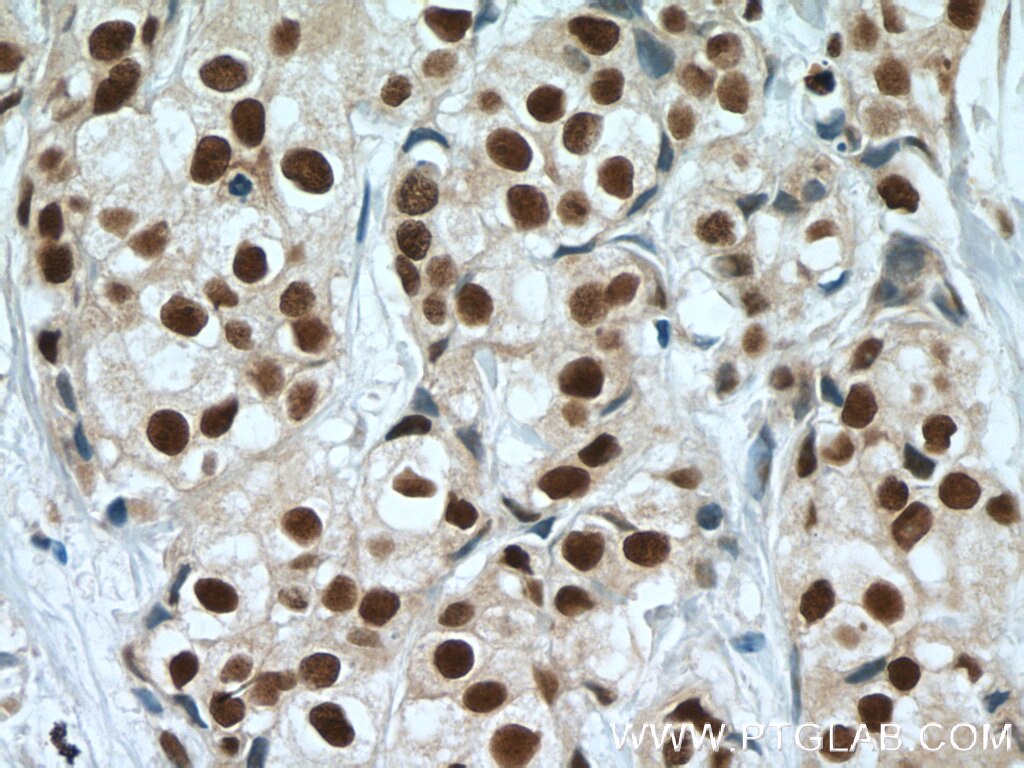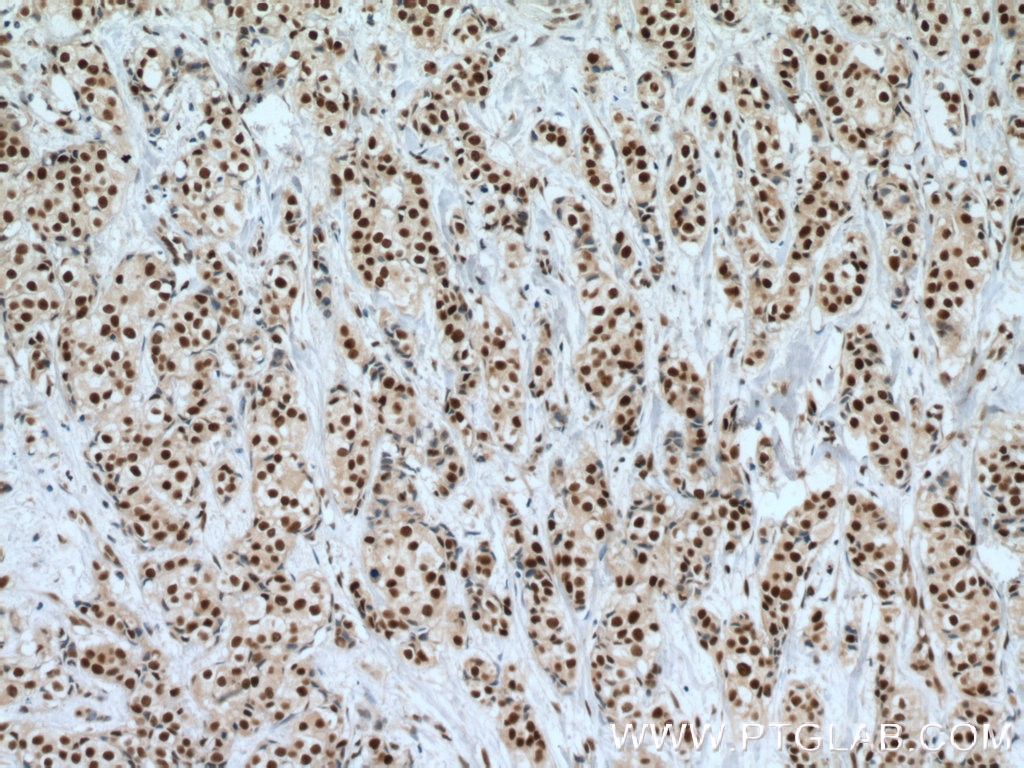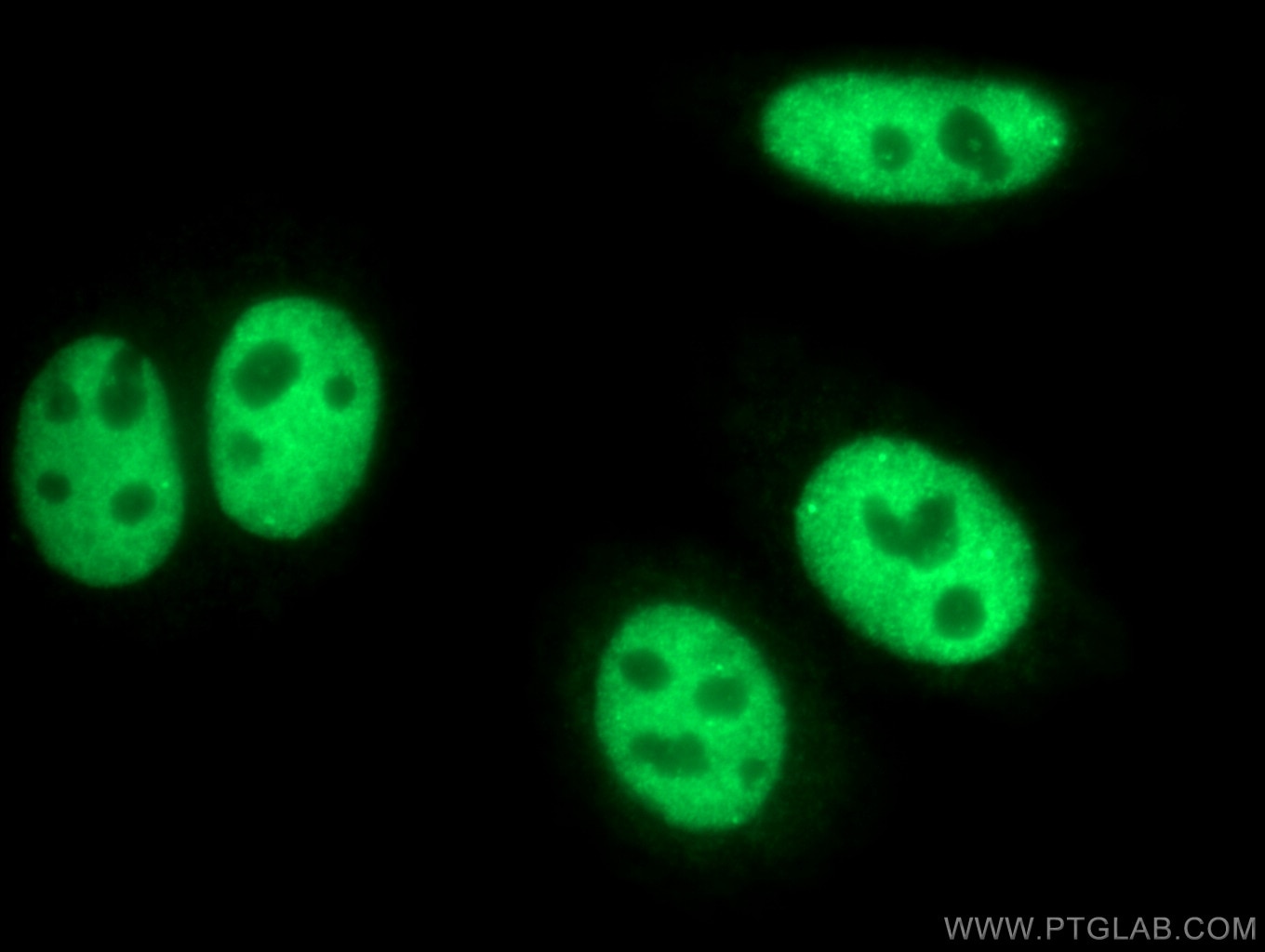- Phare
- Validé par KD/KO
Anticorps Polyclonal de lapin anti-CstF-64
CstF-64 Polyclonal Antibody for IF, IHC, IP, WB, ELISA
Hôte / Isotype
Lapin / IgG
Réactivité testée
Humain, rat, souris
Applications
WB, IP, IHC, IF, CoIP, ELISA
Conjugaison
Non conjugué
N° de cat : 26825-1-AP
Synonymes
Galerie de données de validation
Applications testées
| Résultats positifs en WB | cellules COLO 320, cellules HeLa, tissu cérébral de souris, tissu testiculaire de souris |
| Résultats positifs en IP | cellules HeLa |
| Résultats positifs en IHC | tissu de cancer du sein humain il est suggéré de démasquer l'antigène avec un tampon de TE buffer pH 9.0; (*) À défaut, 'le démasquage de l'antigène peut être 'effectué avec un tampon citrate pH 6,0. |
| Résultats positifs en IF | cellules HepG2 |
Dilution recommandée
| Application | Dilution |
|---|---|
| Western Blot (WB) | WB : 1:500-1:1000 |
| Immunoprécipitation (IP) | IP : 0.5-4.0 ug for 1.0-3.0 mg of total protein lysate |
| Immunohistochimie (IHC) | IHC : 1:50-1:500 |
| Immunofluorescence (IF) | IF : 1:50-1:500 |
| It is recommended that this reagent should be titrated in each testing system to obtain optimal results. | |
| Sample-dependent, check data in validation data gallery | |
Applications publiées
| KD/KO | See 1 publications below |
| WB | See 1 publications below |
| IHC | See 1 publications below |
| IF | See 1 publications below |
| CoIP | See 1 publications below |
Informations sur le produit
26825-1-AP cible CstF-64 dans les applications de WB, IP, IHC, IF, CoIP, ELISA et montre une réactivité avec des échantillons Humain, rat, souris
| Réactivité | Humain, rat, souris |
| Réactivité citée | rat, Humain, souris |
| Hôte / Isotype | Lapin / IgG |
| Clonalité | Polyclonal |
| Type | Anticorps |
| Immunogène | CstF-64 Protéine recombinante Ag25254 |
| Nom complet | cleavage stimulation factor, 3' pre-RNA, subunit 2, 64kDa |
| Masse moléculaire calculée | 61 kDa |
| Poids moléculaire observé | 64 kDa |
| Numéro d’acquisition GenBank | BC017712 |
| Symbole du gène | CSTF2 |
| Identification du gène (NCBI) | 1478 |
| Conjugaison | Non conjugué |
| Forme | Liquide |
| Méthode de purification | Purification par affinité contre l'antigène |
| Tampon de stockage | PBS avec azoture de sodium à 0,02 % et glycérol à 50 % pH 7,3 |
| Conditions de stockage | Stocker à -20°C. Stable pendant un an après l'expédition. L'aliquotage n'est pas nécessaire pour le stockage à -20oC Les 20ul contiennent 0,1% de BSA. |
Informations générales
Cleavage stimulation factor 64 kDa subunit is a protein that in humans is encoded by the CSTF2 gene. This gene encodes a nuclear protein with an RRM (RNA recognition motif) domain. The protein is a member of the cleavage stimulation factor (CSTF) complex that is involved in the 3' end cleavage and polyadenylation of pre-mRNAs. Specifically, this protein binds GU-rich elements within the 3'-untranslated region of mRNAs.
Protocole
| Product Specific Protocols | |
|---|---|
| WB protocol for CstF-64 antibody 26825-1-AP | Download protocol |
| IHC protocol for CstF-64 antibody 26825-1-AP | Download protocol |
| IF protocol for CstF-64 antibody 26825-1-AP | Download protocol |
| IP protocol for CstF-64 antibody 26825-1-AP | Download protocol |
| Standard Protocols | |
|---|---|
| Click here to view our Standard Protocols |
Publications
| Species | Application | Title |
|---|---|---|
Neuron Suppression of premature transcription termination leads to reduced mRNA isoform diversity and neurodegeneration. | ||
Biochem Biophys Res Commun Cleavage stimulating factor 64 depletion mitigates cardiac fibrosis through alternative polyadenylation.
| ||
Front Oncol CSTF2 Promotes Hepatocarcinogenesis and Hepatocellular Carcinoma Progression via Aerobic Glycolysis | ||
iScience Chromodomain helicase DNA-binding domain 2 maintains spermatogonial self-renewal by promoting chromatin accessibility and mRNA stability | ||
J Hepatocell Carcinoma A Novel Gene Pair CSTF2/DPE2A Impacts Prognosis and Cell Cycle of Hepatocellular Carcinoma |
